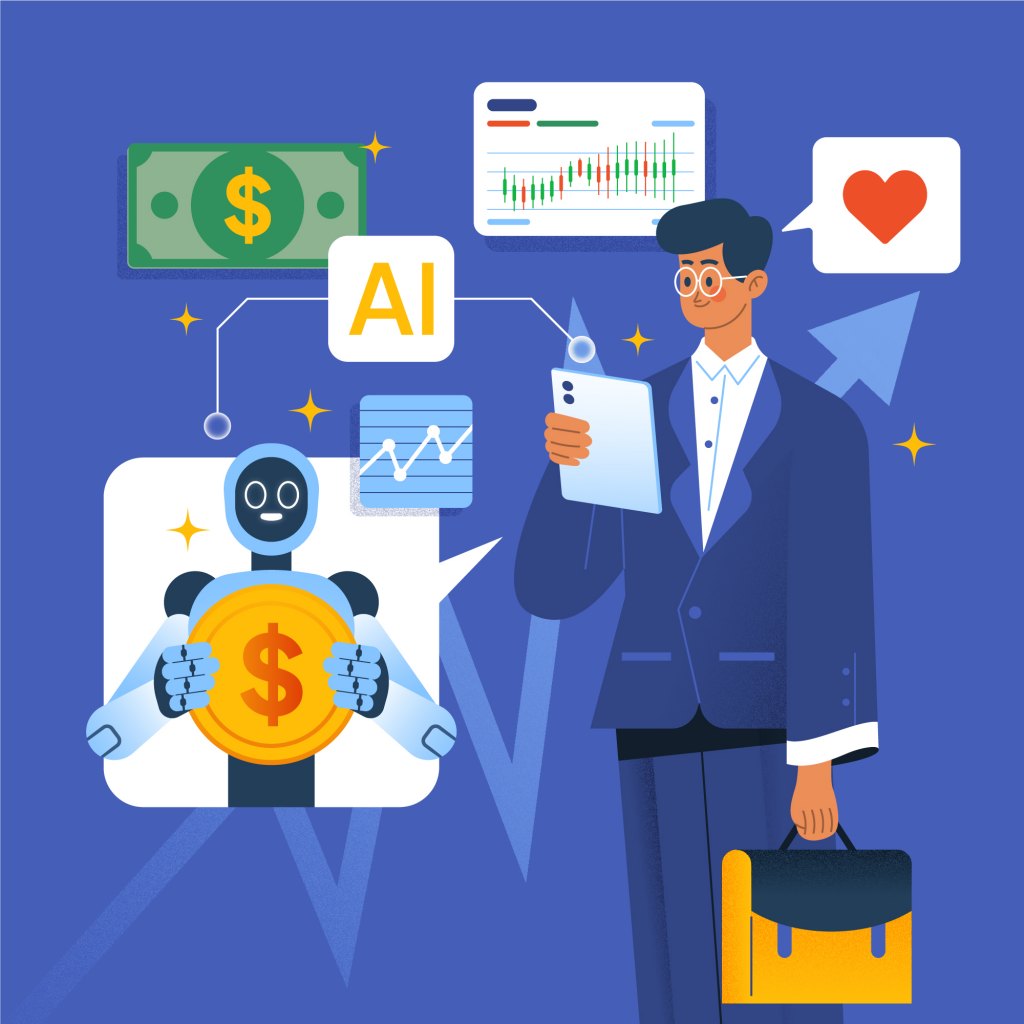In finance, accuracy, performance, and compliance are paramount. For businesses of all sizes, keeping unique accounting records is sometimes the most effective regulatory requirement and a strategic necessity. However, conventional accounting strategies often incorporate guide strategies, which may be time-consuming, error-willing, and susceptible to human errors. Enter AI-powered accounting answers, revolutionizing how corporations manage their fee range and unlocking new productiveness, accuracy, and perception tiers.

The Evolution of Accounting Technology
Often considering a corporation’s language, accounting has long gone through a brilliant transformation over the centuries. From guide ledger entries to state-of-the-art AI-powered structures, the evolution of accounting generation indicates the relentless march of improvement and innovation within finance. This article explores the essential component milestones within the evolution of the accounting era and examines how enhancements are anticipated in how companies manipulate their financial facts.
Manual Ledger Systems (Pre-20 Century)
The origins of accounting can be traced to historical civilizations in Mesopotamia and Egypt, in which rudimentary accounting facts werewere stored on clay capsules. However, it was the handiest within the medieval period that double-get entry to bookkeeping emerged as a suitable device for recording monetary transactions. Accountants meticulously recorded debits and credit rating rankings in ledgers with the precious resource of hand, laying the muse for contemporary-day accounting requirements.
Introduction of Mechanical Calculators (19th Century)
The Industrial Revolution added substantial enhancements in a generation, including mechanical calculators and devices. These early devices simplified mathematics calculations and expedited the mission of tabulating economic statistics. However, accounting remained complex, time-consuming, and labor-intensive, requiring giant manual attempts.
Emergence of Electronic Accounting Systems (20th Century)
The introduction of PC systems within the mid-twentieth Century revolutionized accounting practices. First, Electronic accounting structures developed for massive groups and government agencies computerized many recurring accounting obligations, along with payroll software processing and stylish ledger control. Early accounting software program application packages, including VisiCalc and Lotus 1-2-3, delivered spreadsheet capability, permitting accountants to put in and analyze economic records more efficiently and successfully.
Rise of Enterprise Resource Planning (ERP) Systems (1980s-1990s)
The Eighties witnessed the emergence of Enterprise Resource Planning (ERP) systems, which covered several commercial business enterprise capabilities and integrated accounting, finance, and human property. They introduced chain control and proper rights right into a single, unified platform. ERP systems revolutionized how companies managed their operations, giving actual-time visibility into important universal overall performance metrics and facilitating information-pushed choice-making.
Adoption of Cloud Computing (21st Century)
In the twenty-first Century, they observed the significant adoption of cloud computing technology, allowing corporations proper access to accounting software and data garage offerings over the internet. Cloud-based accounting answers offer scalability, flexibility, and price effectiveness, allowing organizations of all sizes to streamline their accounting strategies and collaborate extra efficiently with a prolonged way of corporations and stakeholders.
Integration of Artificial Intelligence (AI) and Machine Learning (Present Day)
In present-day years, artificial intelligence (AI) and machine analyzing have emerged as endeavor-changers in accounting. AI-powered accounting solutions leverage advanced algorithms and predictive analytics to automate repetitive duties, discover anomalies, and generate actionable insights from significant quantities of monetary records. From automation tool access and fraud detection to real-time reporting and predictive analytics, AI is remodeling the accounting career, allowing accountants to pay much less on mundane obligations and further on strategic preference-making and rate-brought offerings for their clients.
Key Features of AI-Powered Accounting Solutions
AI-powered accounting solutions provide many capabilities and abilities to streamline monetary methods, beautify accuracy, and improve desire-making. Some essential functions embody:
- Automated Data Entry: AI algorithms can extract facts from numerous belongings, which embody invoices, receipts, and monetary group statements, and routinely populate accounting facts, reducing the want for manual records access and minimizing mistakes.
- Real-Time Reporting: AI-powered accounting software provides real-time right of access to monetary records, allowing groups to generate correct evaluations and dashboards on-call for and benefit right away insights into their widespread financial overall performance.
- Predictive Analytics: By analyzing ancient facts and figuring out dispositions, AI algorithms can anticipate destiny economic results, helping organizations watch for coin glide fluctuations, figuring out functionality risks, and making knowledgeable alternatives.
- Fraud Detection: AI-powered accounting solutions can encounter anomalies and suspicious styles in economic transactions, flagging ability fraud or errors for extra investigation and mitigating dangers.
- Tax Compliance: AI algorithms can examine tax criminal pointers and tips and robotically calculate tax liabilities, ensuring compliance and minimizing the hazard of luxurious consequences or audits.
- Customization and Integration: AI-powered accounting software package application programs may be custom-designed to meet the ideal needs of companies sooner or later in excellent industries and seamlessly combine with different structures and applications, which include CRM software applications and inventory management structures.
The Benefits of AI-Powered Accounting Solutions
The adoption of AI-powered accounting answers gives numerous advantages for groups collectively:
- Improved Efficiency: By automating regular duties and streamlining workflows, AI-powered accounting solutions store time and decrease the authority’s burden on finance groups, letting them recognize better-charge sports activities.
- Enhanced Accuracy: AI algorithms can process vast volumes of statistics with precision and accuracy, minimizing the threat of errors and ensuring the integrity of economic statistics.
- Cost Savings: By reducing manual work and developing productivity, AI-powered accounting solutions can lower operational costs and improve businesses’ contemporary profitability.
- Better Decision-Making: Like any other AI tools such as chatbots, AI logo generator apps, and AI writing tools, AI-powered accounting software uses natural language processing, machine learning, and recognition/detection technologies to generate well-timed and actionable insights into financial usual average performance, permitting groups to make knowledgeable options and strain strategic growth duties.
- Scalability: AI-powered accounting answers can scale to address the desires of developing companies, offering flexibility and adaptability in an ever-changing organization’s surroundings.
Real-World Applications
AI-powered accounting answers are already creating a sizeable impact in numerous industries:
- Small Businesses: Small organizations can leverage AI-powered accounting software to automate bookkeeping duties, manage coins waft, and song expenses greater correctly, permitting them to hobby on developing their enterprise organization.
- Enterprise Organizations: Large businesses can use AI-powered accounting solutions to streamline complex economic strategies, ensure compliance with regulatory requirements, and take advantage of more profound insights into their monetary, everyday average performance.
- Accounting Firms: Accounting corporations can harness the power of AI to deliver exceptional price-introduced offerings to their customers, incorporating predictive analytics, fraud detection, and strategic economic planning.
Challenges and Considerations
While AI-powered accounting solutions provide incredible capacity, there are a few disturbing situations and problems to keep in mind:
- Data Security: With the developing reliance on generation, statistics protection and privacy are essential worries. Businesses must implement robust protection capabilities to shield sensitive economic information from cyber threats and breaches.
- Training and Adoption: Adopting AI-powered accounting solutions requires schooling and upskilling finance groups to implement the era efficiently. Businesses must spend money on employee training and alternate manipulation duties to ensure successful adoption and integration.
- Ethical Considerations: As AI becomes greater accepted in accounting, ethical problems surrounding facts utilization, set of regulations bias, and transparency grow to be an increasing number of essentials. Businesses want to prioritize moral practices and ensure responsibility in AI-driven decision-making techniques.
The Future of Accounting
As the AI generation continues to evolve, the destiny of accounting holds exciting opportunities. AI-powered accounting answers have become increasingly modern, leveraging advanced algorithms, natural language processing, and predictive analytics to deliver companies with a fair higher price. From automatic monetary forecasting to cognitive computing, the ability applications of AI in accounting are infinite.
In prevention, AI-powered accounting solutions represent a paradigm shift in how groups manipulate their finances. By harnessing the electricity of AI, corporations can release new levels of performance, accuracy, and perception, using increase and innovation in the digital age. As we use this transformative generation, we must stay vigilant, ethical, and adaptive, ensuring that AI remains a force for efficiency inside global accounting and beyond.























Leave a comment!